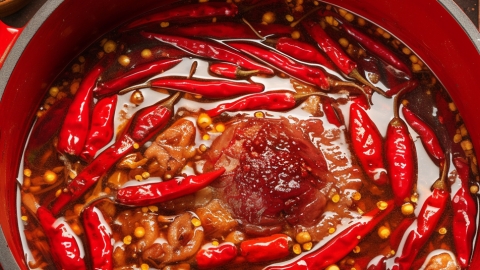What should patients with anal fistula avoid eating?
Patients with anal fistula should generally avoid spicy and stimulating foods, greasy and heavy foods, fried foods, alcoholic beverages, and gas-producing foods. The specific reasons are as follows:

1. Spicy and stimulating foods: These foods can irritate the intestinal mucosa and the anal fistula lesion, potentially worsening local congestion, swelling, pain, and increased discharge. Common examples include chili peppers, Sichuan pepper, ginger, garlic, and mustard. Intake of these foods should be strictly controlled in daily diet.
2. Greasy and heavy foods: These foods are difficult to digest and increase gastrointestinal burden, possibly leading to constipation or diarrhea. Abnormal bowel movements may cause friction or contamination of the anal fistula wound, hindering recovery. Foods such as fatty meat, animal offal, and rich meat broths should be avoided as much as possible.
3. Fried foods: Fried foods are high in oil and often have a hard texture due to high-temperature cooking, making them difficult to digest. They may also promote damp-heat accumulation and exacerbate local inflammatory responses in anal fistula. Examples such as fried chicken, youtiao (fried dough sticks), and fried meatballs should be strictly avoided.
4. Alcoholic beverages: Alcohol can dilate blood vessels and irritate the anal fistula site, worsening local inflammation. It may also affect metabolism and immune function, delaying wound healing. Patients with anal fistula should avoid all types of alcohol, including liquor, beer, and wine.
5. Gas-producing foods: Excessive consumption of gas-producing foods can lead to bloating and increased abdominal pressure during defecation, which may compress the anal fistula area and cause discomfort. Common gas-producing foods include legumes, onions, sweet potatoes, and carbonated drinks. Intake should be adjusted according to individual tolerance.
In daily life, patients with anal fistula should focus on a light, easily digestible diet rich in dietary fiber. If discomfort occurs after consuming certain foods, dietary adjustments should be made promptly. Regular follow-up visits and adherence to medical advice are essential for promoting recovery.







